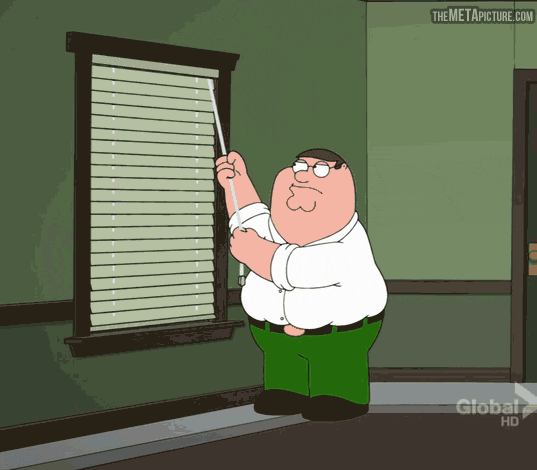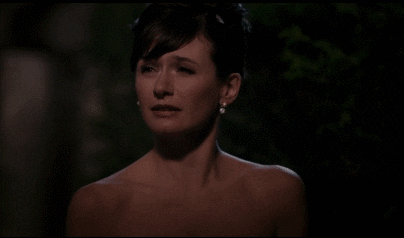https://media1.tenor.com/images/1f24abd92037563131c8c1ff054983e8/tenor.gif?itemid=17116817


28
I’ve been meaning to watch Love on the Spectrum. Your questions are making me introspect and I’ll try not to write a novel  , but thinking on this seems to be a positive experience in the moment.
, but thinking on this seems to be a positive experience in the moment.
I really didn’t speak much until I was six years old, and even after that I was far less verbally communicative than others. When I was ~30(I am now early 40’s) I shared some of my early childhood development experiences with a friend of mine who was completing a Masters in Psychology. Their instant reaction was that major parts of my experience were indicators that professionals now correlate to potentially being on the autism spectrum. I took a couple of tests online designed for adults that gave the same feedback.
I don’t claim to be on the spectrum, considering that I have no clinical diagnosis. However, when I interact with people who are, I see commonalities without having to stretch to see them. Especially my nephew or cousins who have been diagnosed on the spectrum and have challenges far greater than my own. It’s eerie in some ways to see it, because it makes me realize just how close I am to being where they are at, and how exponential the effect of the differences between us can be. My mom, sisters, and aunts can see the parallels(and the differences too).
When I asked my mom what her contemporaneous thoughts were about my relatively slow verbal development as a child, she said “We all knew that you knew how talk. We just thought you didn’t have much to say.” This was a similar response to the one that she gave me after we found out that I was colorblind(at age 15), and my sisters divulged that I’d been wearing ridiculously un-matching clothes for years. I asked mom why she/they hadn’t stopped me. “I thought that was just how you wanted to express yourself.”  Mom. Her love was unconditional and without judgement.
Mom. Her love was unconditional and without judgement.
As you may imagine, I was very introverted as a kid. I loved the rules and structure of numbers and math. It made sense to me and I found a lot of comfort in the safe space of understanding. All of my doodling was and still is geometric shapes and fractions and ratios and equations. Strength: I’m good at games and solving problems that require memory, spatial awareness, calculation and forecasting. Weakness: Ambiguous subjects and concepts were of little to no interest to me growing up, partly because they didn’t provide that same safe feeling that I found in non-ambiguity. I still can have a propensity towards black & white thinking, in part because it makes me feel “better” or more at ease.
When I got to college I noticed that the people having the most fun(ahem…and had the best success with the opposite sex) in social settings were the extroverts. So, I forced myself to act like an extrovert in those settings as much as I could. I specifically sought out jobs that forced me to interpersonal interact: server, bartender, sales jobs that required long periods of interaction and public speaking. It was a huge challenge at first. It was transformational though.
Most people now assume that I am an extrovert, not knowing that after I leave work or the party or BBQ that I am wiped out and need to recharge. The is can have a negative impact on my personal relationships because my exhaustion from intensively interacting with people at work can severely limit my desire to interact with friends and family in my off hours. I like to say I’m the most extroverted introvert you’ll ever meet. It helps that I’m relatively witty and have a good way with words. In the strength vs weakness tabulation, I am far better at expressing myself than understanding other’s expressions of their selves and I have a lower than average ability to quickly comprehend other people’s emotions and the reasons for their emotions.
I remember as a senior in college a friend told me that a few of our classmates didn’t like me, one especially so. It blew my mind. Up until then, I had no concept of others not liking me(I either liked, or was indifferent to, everyone else and I was still operating under the assumption that everyone else was internally just like me). I had picked up on absolutely zero of their snarkyness, none of their stink eyes aimed in my direction, and their passive aggressive exclusion of me in different settings had gone completely unnoticed. Of course, this made them dislike me even more because from their perspective I was impervious to their hatred, rather than being blissfully unaware.
Currently, I am striving to do my best to use awareness of my strengths and weakness to improve in those areas. With the understanding that self-introspection and personal improvement is a process.
I sympathize with the extroverted introvert thing. I like talking to people but it really wears me out and I need a lot of alone time to recuperate.
Me too. I call myself a gregarious introvert. Not to be mistaken with a ggoreo introvert.
That is very interesting. I appreciate you sharing so much about your experience and self-concept.
There is one other story in Love on the Spectrum you might relate to. One of the guys with autism is talking to a relationship expert who is explaining that many people on the spectrum struggle to read faces and make sense of bodied expressions of emotion. But the guy she’s advising understood that limitation in himself at an early age and has thus OBSESSED over studying facial expressions and body language. His obsession has made him much better at reading people than most neurotypical people.
It’s funny how some people say I talk too much at the poker table, but at the same time people complain that I don’t share anything about myself. I’ve gotten good at driving the conversation away from me by asking questions and getting other people to talk more. I don’t really like talking to people, but I like listening to other people talk and I understand I have to give some to get some.
Sometimes, I think of conversations as a decision tree where I have multiple branches mapped out of how the conversation might flow and ways of bringing it back to what I had planned when talk branches out into uncharted territory. Am I right in thinking that most people don’t game-plan social interaction in this way?
At times, I am paranoid that everyone hates me. Maybe paranoid isn’t the right word. It’s not that I want everyone to like me; I just assume they don’t until proven otherwise. Maybe I am such an outlier on that eye test because I assumed more negative things about the people. I’m open to other people theorizing about why I had a much lower score than other people.
I think that what you’re describing is something that other people can do as well, just maybe not to the same extent and frequency. Are you always gameplanning conversations that way or do you sometimes have casual free flowing interactions?
That could be the case. I felt I had the hardest time judging the female eyes when I was doing the test. Which correlates to me always being like do they like me or not like me??? Best just to act platonic so I don’t come off as a creep.
You mentioned that at the poker table that you read more body language tells from below the face, so it may be that reading nonverbal eye cues are less familiar to you.
I don’t do casual free-flowing interactions. It sometimes gets really awkward when I run into people unexpectedly.
Some of my prep for poker is researching possible topics of conversation, including local sports. I’ll remember things people mention, look stuff up, and have a response prepared if they bring it up again in a few months. When the conversation goes in a direction I don’t anticipate about something I don’t know much about, I listen quietly.
What am I supposed to do? I feel like the things I am most knowledgeable about are poker strategy and politics and I’m not starting conversations on either of those topics at a poker table.
Got a 27
I’m pretty surprised. I guessed at a lot of those especially towards the end.
I also noticed that most of my guesses involved negative emotions. Might say something about my mental state.
I was young and hot once, I know the sultry looks
surely more than one answer is correct? I really doubt i got that many right having to guess the correct out of 4. I felt like i knew the sultry looks too although I never saw that shit when i was younger.
I’m probably overdue to share my story itt, but yeah, it did not work for me. I think you really need commitment from both partners along with a good therapist. And some luck. Most couples wait too long to start. And sometimes the counseling reveals a fundamental mismatch. So I guess it’s not too surprising that it usually ends poorly. Still absolutely worth it, though. In fact, I think it would be valuable even for couples without major problems.
I remember reading sriracha’s post and thinking “man, I really hope it works out better for him”. So glad it did!
How did Bilo make an appearance itt?
26
29 … Like others, kind of surprised since I felt like I was guessing a lot, usually between 2 options.
I hope I get to meet you in person some day. Your writing displays a self-awareness and emotional health that I just don’t see in a lot of humans. I am sorry you are having to make this transition with some of the relationships that you have to deal with, but man, you seem to be handling it like a 100x better than I ever could. Anyway, keep moving forward and well, I just don’t know how to articulate it, keep being the really cool person you are.

Did anyone else rule out options 1 by 1?
32—the method I landed on was to look at each of the answer choices and then make that face to see if the computer face matched any of my four faces. If anybody was watching me take this test Rear Window-style from across the street then honestly for those five minutes my face probably looked pretty much just like it always looks whenever I’m scrolling through an Unstuck thread
25 - i’m a monster
I looked at the eyes and then tried to imagine the rest of the face.